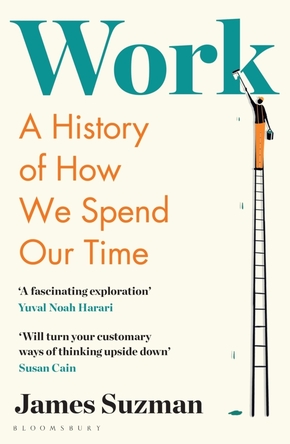
Work - A History of How We Spend Our Time
| Verlag | Bloomsbury Trade |
| Auflage | 2021 |
| Seiten | 464 |
| Format | 13,7 x 3,0 x 20,0 cm |
| Gewicht | 376 g |
| Artikeltyp | Englisches Buch |
| EAN | 9781526605023 |
| Bestell-Nr | 52660502UA |
_______________
'A fascinating exploration that challenges our basic assumptions of what work means' - Yuval Noah Harari
'There is eminently underlinable stuff on most pages ... Fascinating' - The Times
'One of those few books that will turn your customary ways of thinking upside down' - Susan Cain
'Illuminating' - New Statesman
_______________
A revolutionary new history of humankind through the prism of work, from the origins of life on Earth to our ever more automated present
The work we do brings us meaning, moulds our values, determines our social status and dictates how we spend most of our time. But this wasn't always the case: for 95% of our species' history, work held a radically different importance.
How, then, did work become the central organisational principle of our societies? How did it transform our bodies, our environments, our views on equality and our sense of time? And why, in a time of material abundance, are we working more than ever before?
Rezension:
As automation threatens to completely disrupt the global job market, it is urgent to rethink the economic, psychological and even spiritual importance of work. By examining the lives of hunter-gatherers, apes and even birds, Suzman highlights that what we consider "natural" is often just the questionable legacy of industrial gurus and agricultural religions. Knowing the history of how we have spent our time in the past will hopefully enable us to make more sensible choices in the future Yuval Noah Harari
